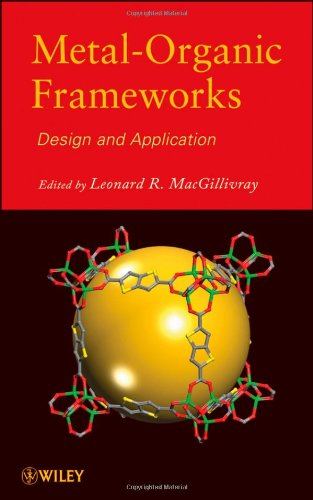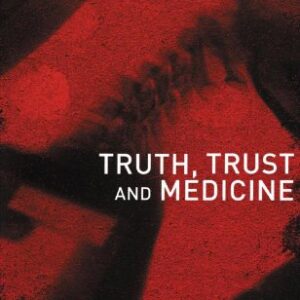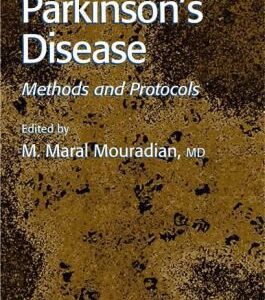Metal-organic frameworks represent a new class of materials that may solve the hydrogen storage problem associated with hydrogen-fueled vehicles. In this first definitive guide to metal-organic framework chemistry, author L. MacGillivray addresses state-of-art developments in this promising technology for alternative fuels. Providing professors, graduate and undergraduate students, structural chemists, physical chemists, and chemical engineers with a historical perspective, as well as the most up-to-date developments by leading experts, Metal-Organic Frameworks examines structure, symmetry, supramolecular chemistry, surface engineering, metal-organometallic frameworks, properties, and reactions “This book is appropriate for a broad readership, starting with curious and thoughtful college undergraduates and reaching beyond to professors and researchers in the life sciences, chemistry, and medicine. This book provides, for the first time ever, a completely integrated look at chemistry, biology, drug discovery, and medicine.”–Jacket. pt. I. Introduction — Understanding structural diagrams of organic molecules — Some common molecules — Proteins and three-dimensional protein structure — Some of the protein structures that appear in this book — pt. II. Inflammatory, cardiovascular and metabolic diseases — Anti-inflammatory agents — Acetylsalicylic acid (Aspirin) — Naproxen (Aleve) — How do anti-inflammatory drugs work? — Other eicosanoids in inflammation — An overview of inflammation — Celecoxib (Celebrex) — Prednisone (Deltasone) — Methotrexate (Trexall) — Allopurinol (Zyloprim) — Antiasthmatic and antiallergic agents — Salmeterol (Serevent) — Fluticasone propionate (Flovent) — Montelukast sodium (Singulair) — Tiotropium bromide (Spiriva) — Loratadine (Claritin) — Type 2 diabetes — An overview of metabolic syndrome — Antidiabetic and cholesterol-lowering agents — Metformin (Glucophage) — Glipizide (Glucotrol) — Pioglitazone (Actos) — Sitagliptin (Januvia) — Atorvastatin (Lipitor) — Ezetimibe (Zetia) — Cardiovascular agents — Atenolol (Tenormin) — Enalapril (Vasotec) — Candesartan cilexetil (Atacand) — Aliskiren (Tekturna) — Amlodipine (Norvasc) — Nitroglycerin — Clopidogrel bisulfate (Plavix) — Digoxin (Lanoxin) — Receptors and signaling — Information flow into the cell by chemical signaling — References for part II — pt. III. Reproductive medicine — Oral contraceptives — Testosterone — Mifepristone (Mifeprex) — Oxytocin (Oxytocin) — Sildenafil (Viagra) — Osteoporosis — Some aspects of osteoporosis — Alendronate (Fosamax) — Calcitriol (Rocaltrol) — Raloxifene (Evista) — Teriparatide (Forteo) — Glaucoma and antiulcer agents — Latanoprost (Xalatan) — Ranitidine (Zantac) — Omeprazole (Prilosec) — References for part III. pt. IV. Autoimmune disease and organ transplant — A brief survey of the immune system — Immunosuppressive agents — Azathioprine (Imuran) — Mycophenolate mofetil (CellCept) — Cyclosporin (Neoral) — Tacrolimus (Prograf) — FTY720 (Fingolimod) — Infectious diseases — Antibiotics — Amoxicillin (Amoxil) — Cefaclor (Ceclor) — Doxycycline (Vibramycin) — Azithromycin (Zithromax) — Ciprofloxacin (Cipro) — Trimethoprim (Triprim) — Amikacin (Amikin) — Vancomycin (Vancocin) — Linezolid (Zyvox) — Isoniazid (Laniazid) — Ancillary antibiotics — Drug resistance — Antiviral agents — On viruses and viral diseases — Acyclovir (Zovirax) — Ribavirin (Virazole) — Oseltamivir (Tamiflu) — Zidovudine (Retrovir, AZT) — Zalcitabine (Hivid) — Nevirapine (Viramune) — Efavirenz (Sustiva) — Lopinavir + ritonavir (Kaletra) — UK427857 (Maraviroc) — Antifungal agents — Amphotericin (Fungizone) — Fluconazole (Diflucan) — Caspofungin (Cancidas) — Terbinafine (Lamisil) — Antimalarial and antiparasitic agents — Parasitic diseases : a focus on malaria — Chloroquine (Aralen) — Artemether + lumefantrine (CoArtem) — Atovaquone + proguanil (Malarone) — Miltefosine (Impavido) — Nitazoxanide (Alinia) — Ivermectin (Stromectol) — References for part IV. pt. V. Malignant disease — An overview of cancer — Capecitabine (Xeloda) — Carboplatin (Paraplatin) — Vinblastine (Velban) — Paclitaxel (Taxol) — Cyclophosphamide (Cytoxan) — Tamoxifen (Nolvadex) — Irinotecan (Camptosar) — Bleomycin (Blenoxane) — Imatinib (Gleevec) — Sunitinib (Sutent) — Bortezomib (Velcade) — Ancillary anticancer agents — References for part V — pt. VI. Drugs acting on the nervous system — Pain and analgesia — Lidocaine (Xylocaine) — Morphine (Avinza) — Acetaminophen (Tylenol) — Fentanyl (Duragesic) — Sodium thiopental (Sodium Pentothal) — Gabapentin (Neurontin) — Diazepam (Valium) — Sumatriptan (Imitrex) — Hypnotics (insomnia) and antismoking — Zolpidem (Ambien) — Ramelteon (Rozerem) — Varenicline (Chantix) — The brain, neurotransmission and molecular neurotransmitters — Neurodegenerative and psychiatric diseases — Levodopa (Larodopa) — Donepezil (Aricept) — Antiepileptic agents — Antianxiety agents — Antidepressants — Antipsychotics — References for part VI — Glossary — Index






Reviews
There are no reviews yet.